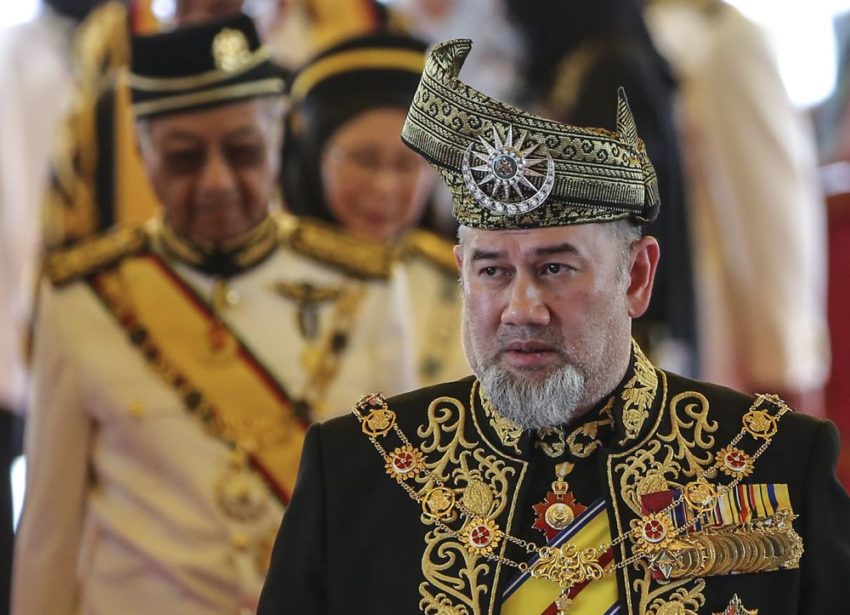This article first appeared at The Malay Mail on 7 Jan 2019.
1. Can the Yang di-Pertuan Agong (YDPA) resign from office?
Article 32(3) of the Constitution allows the Agong to resign from office before his five-year term ends by writing to the Conference of Rulers. The YDPA can also technically be removed from office by the Conference of Rulers through a majority vote.
2. How is the next YDPA selected?
Contrary to popular belief, the Deputy Agong i.e. Sultan Nazrin of Perak will not automatically succeed the YDPA post.
There is in fact an election process described in the Third Schedule of the Constitution. Malaysia has a unique system whereby the position of the YDPA rotates among the State Rulers. In this respect, there is an “election list”. The current “election list” is arranged in accordance to the states in which the first to the ninth YDPA belonged.
The State Ruler at the top of the “election list” shall be offered the YDPA post. It does not go to the Deputy Agong (unless he happens to be at the pinnacle of the “election list”). Neither is there no election process per se whereby any State Ruler can throw his tengkolok in the ring for the YDPA post.
A State Ruler on top of the “election list” can only be denied the post in three circumstances. First, if he is a minor. Second, if the Conference of Rulers by secret ballot votes that he is unsuitable by reason of infirmity of mind or body or for any other cause to exercise the YDPA’s functions.
Third, if he himself declines the post. If he does not accept the YPDA post, the State Ruler whose state is the next on the “election list” shall be offered, and so on until a State Ruler accepts. This was alluded to in 2016, whereby the Sultan of Johor was offered the YDPA — bypassing the Sultans of Kelantan and Pahang. His Royal Highness eventually rejected the offer on the grounds that he respected the rotation system, and the Sultan of Kelantan became the recently resigned YDPA.
It is interesting to note that the Governors of Melaka, Penang, Sabah and Sarawak will neither be offered the YDPA post, nor take part in the balloting process (although they are members of the Conference of Rulers)
3. Does the government have a say in the selection process of the next YDPA?
Strictly, no. Although Malaysia is a constitutional monarchy, this is one of the areas in which the State Rulers have absolute discretion.
4. Which State Ruler is in contention for the YDPA post?
If one follows the “election list” in accordance with the chronology of the first to the ninth YDPA, the order is as follows:
Sultan of Pahang
Sultan of Johor
Sultan of Perak
Yamtuan Negri Sembilan
Sultan of Selangor
Raja of Perlis
Sultan of Terengganu
Sultan of Kedah
5. What are the qualifications for and restrictions of the role of YDPA?
At the selection process stage, as stated above: The YDPA cannot be a minor. Further, he must not have any infirmities of mind or body or for any other cause to exercise the YDPA’s functions.
After the YDPA is elected, he is bound by several restrictions. There is in fact an entire provision in the Constitution i.e. Article 34 which is titled “Disabilities of Yang di-Pertuan Agong, etc.”. Among others, the YDPA:
- Cannot exercise his many functions as the Ruler of his State, except as Head of the religion of Islam;
- Cannot hold “any appointment carrying any remuneration” — this implies other paying government or business positions;
- Cannot “actively engage in any commercial enterprise”;
- Cannot receive any emoluments accruing to him as State Ruler;
- Cannot, without the consent of the Conference of Rulers, be absent from the Federation for more than 15 days, except on a State visit to another country
6. Who will be the Head of State for the time being in the absence of the YDPA?
Pursuant to Article 33 of the Constitution, the Deputy Agong i.e. Sultan Nazrin of Perak shall exercise the functions and have the privileges of the YDPA during any vacancy in the office. Hence, Malaysia is not functioning without a Head of State as we speak.
7. What is the YDPA’s role and is he an important figure in modern Malaysia?
The YDPA is our Head of State, but not the head of government (as is the Queen of England). Among others, he is also the Supreme Commander of our Armed Forces.
Under a constitutional monarchy, the YDPA has limited powers. He is duty bound to act in accordance with the advice of the prime minister — he has no discretionary powers in this regard (see: Article 40(1A) of the Constitution). This is the hallmark of a democratic nation bound by the rule of law.
However, under Article 40(2) of the Constitution, the YDPA has discretionary powers in three areas (and this is where the YDPA can have a huge say over national matters):
- The appointment of the prime minister;
- Withholding consent to a request for dissolution of Parliament;
- Requisitioning a meeting of the Conference of Rulers concerned solely with the privileges, position, honours or dignities of their Royal Highnesses, and any action at such a meeting.
- It is therefore paramount to the national interest that our next YDPA acts strictly in accordance with the Constitution, and is able to have a collaborative relationship with the current government.
The following days will witness much excitement. Will the Sultan of Pahang accept the post, or will he offer it to the Sultan of Johor? Malaysians wait with bated breath as to who will ascend the yellow throne at Istana Negara.
